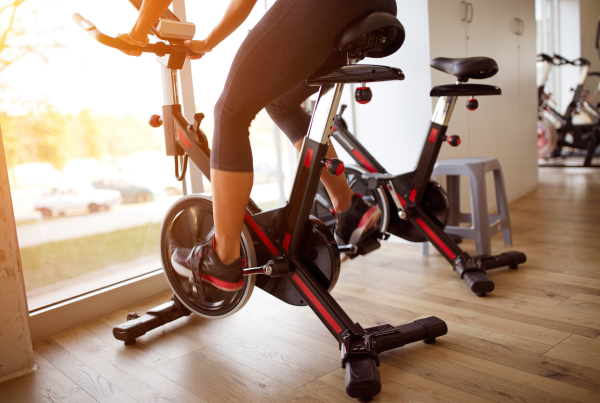HIIT boosts energy and confidence in cancer survivors
Research from Canada and the UK has found that High Intensity Interval Training (HIIT) can reduce tiredness and enhance self-esteem in men that have survived testicular cancer.
In Australia, around 900 men are diagnosed with testicular cancer each year, and a side effect of treatment (as with most cancer treatments) is tiredness.
For the new study, 63 testicular cancer survivors took part in a 12-week exercise programme that involved elements of HIIT-style training. The men reported enhanced energy levels and a boosted self-esteem compared with cancer survivors that underwent regular follow-up care.
Senior author of the study, Professor Kerry Courneya from the University of Alberta in Canada, said, “This small study shows the men who had the biggest increase in fitness saw the greatest benefits. This indicates that higher-intensity exercise, which increases fitness levels, has more impact than more moderate activity.”
Martin Ledwick from Cancer Research UK said, “This adds to the increasing evidence that exercise programmes can improve well-being and fatigue after cancer treatment.”
Why is that walnut so darn good for you?
The humble walnut has long been associated with a number of health benefits – so many, in fact, that a group of American researchers set out to explore exactly what its magic X-factor ingredient is.
Assistant Professor of food science and human nutrition, Hannah Holscher, specifically looked at the effect that walnuts have on gut microbiota – the trillions of (predominantly beneficial) micro-organisms that live in the gut.
A group of study participants ate 42g of walnuts over two three-week periods, while another group ate none. Blood and stool sample analysis showed an increase in the level of three main bacteria: Faecalibacterium, Roseburia and Clostridium, which produce a metabolic by-product called butyrate, known to boost colon health.
Holscher said, “Our study provides initial findings that suggest the interactions of microbes with the undigested walnut components are producing positive outcomes.”
Source: The Journal of Nutrition
Could exercise help recall words?
A study group at the University of Birmingham tested 20 older men and women at the school’s human performance lab. Volunteers were aged between 60 and 80, healthy, and with no clinical signs of cognitive problems. Their aerobic capacities were measured by having them ride a specialised stationary bike to exhaustion; fitness levels among the subjects varied greatly. This group and a second set of volunteers in their twenties then sat at computers as word definitions flashed up on the screen, prompting them to indicate if they knew the word. The young subjects experienced far fewer tip-of-the-tongue failures than the seniors, even though they had smaller vocabularies over all, according to other tests. Within the older group, the inability to identify and say the right words was strongly linked to fitness.
Katrien Segaert, a psychologist at the University of Birmingham who led the study, said, “Fitness has widespread effects on the brain.”
Yet, the study cannot prove that greater fitness is what causes older brains to maintain better processing skills; it can only suggest a correlation. Also, exercise habits were not considered. Aerobic fitness, which depends to some degree on genetics, was the variable measured. Nor did the study look more broadly into how fitness might interact with language processing as a person ages. Areas affected include the frontal and temporal cortices, which are involved in language processing.







